
A research team, formed by UTAR and University of Malaya (UM), visited three indigenous villages located at Lenggong, Perak, namely Kampung Lawin Selatan, Kampung Sungai Karah, and Kampung Lubok Chupak, from 7 October 2017 to 8 October 2017.
The aim of this visit was to provide necessary items such as food and clothes for the villagers. Simultaneously, an investigation was carried out to figure out the potential site for solar photovoltaic (PV) and a micro hydro power plant installation, in order to provide a sustainable power supply for the villages using renewable energy resources.
The research team, for this visit, was represented by Lee Kong Chian Faculty of Engineering and Science (LKC FES) Principal Investigator Dr Chua Kein Huat, LKC FES Centre for Power Systems Chairperson Prof Ir Dr Lim Yun Seng and spouse Serena Liew, UTAR Master of Engineering Science student Soon Kok Yew as well as senior lecturers from UM Dr Che Hang Seng and Dr Tan Chia Kwang.
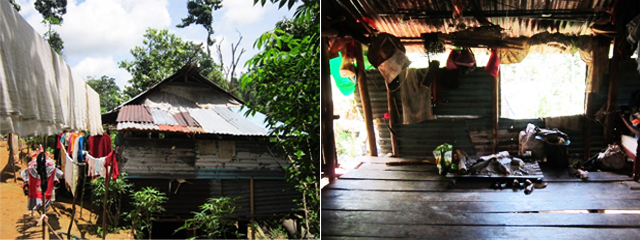
The condition of houses at Kampung Lawin Selatan
The trip started with a field visit to Kampung Lawin Selatan, a rural community of 83 inhabitants and 11 houses, where it has no access to electricity. Although the village consists of two diesel generators, the villagers were unable to operate it due to high diesel fuel price, frequent breakdown and high operational cost of these generators. Undoubtedly, this has increased the villagers’ burden as they lack consistent income and they can only collect forest resources to exchange food and essential living things with outsiders.
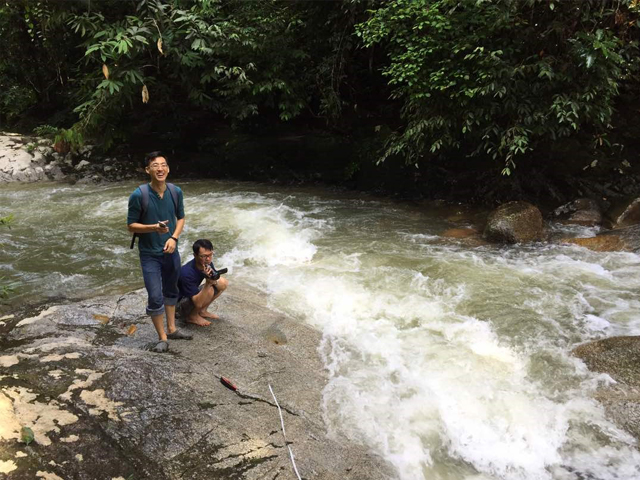
Dr Che and Dr Chua carrying out a simple test to measure the flow rate of the river
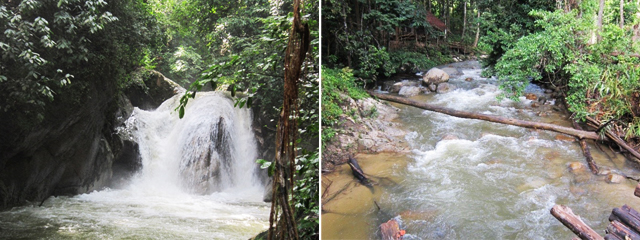
The high streamflow river at Kampung Lawin Selatan
Upon surveying the surrounding of the village, the research team found a high streamflow river nearby that has the potential for micro hydro generation. However, the installation of hydro power plant was too expensive and was not economically feasible. After considering the reliability and the cost, the researchers opt for the solar power generation instead, as it was an easier option to keep the solar-powered system going and more affordable. Several potential sites have been identified for the installation of solar PV panels in the village.
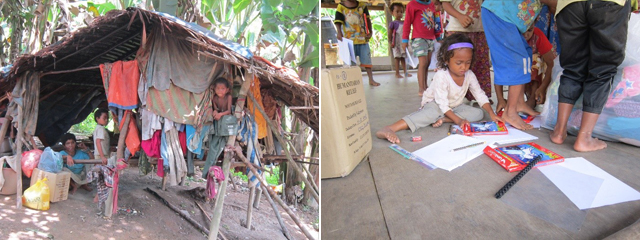
Assistance and support for the Kampung Sungai Karah villagers
The second visit was at Kampung Sungai Karah, where the living condition of the villagers was more manageable compared to the previous village. The villagers sustained themselves through their own plantation and fish farm. The local government has also built four concrete houses and a multi-purpose hall for the villagers. However, there was no access to electricity for these houses; but the village still has rooftops that could benefit from solar installations. Dr Chua has successfully raised RM600 from the Department of Electrical and Electronic Engineering to buy colouring pencils for the children in that village.
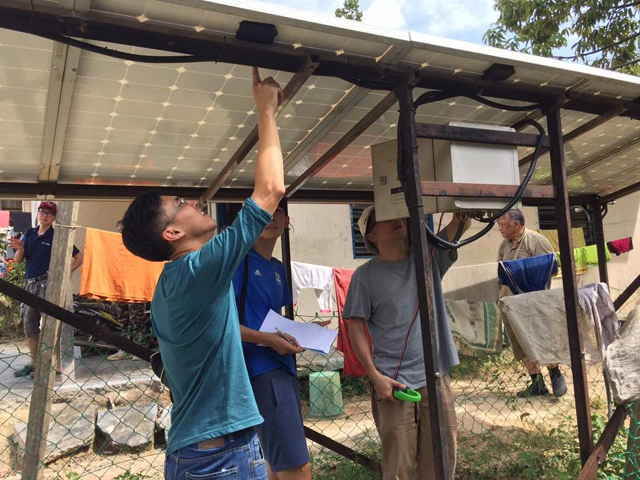
From left: Dr Che, Soon and Prof Lim are inspecting the solar PV panel
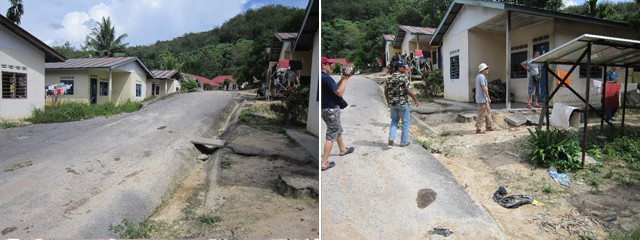
Road condition at Kampung Lubok Chupak
The last visit, Kampung Lubok Chupak, was the most developed indigenous village. The road to the village was fully laid by tar and its condition was significantly better than the other two villages. The local government has built 15 concrete houses that are equipped with solar PV system with batteries for the villagers. Unfortunately, most of the PV systems were no longer functioning.
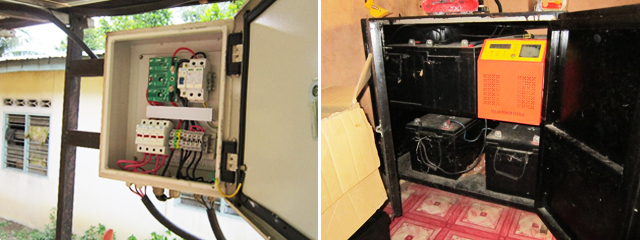
Spoilt and non-functional solar PV systems
When asked, Dr Chua said, “The three villages have one common issue—lack of electricity and education. These villages are located in a very remote area and the children who live there have no chance to go to school. They are living in energy poverty and they really need help to establish the electricity to improve the quality of their lives. With the electricity supply, they can carry out some economic activities at night. The children can also study during the night time.”
“Our next step is to raise funds to provide electricity in the villages,” he added.
© 2019 UNIVERSITI TUNKU ABDUL RAHMAN DU012(A).
Wholly owned by UTAR Education Foundation Co. No. 578227-M LEGAL STATEMENT TERM OF USAGE PRIVACY NOTICE